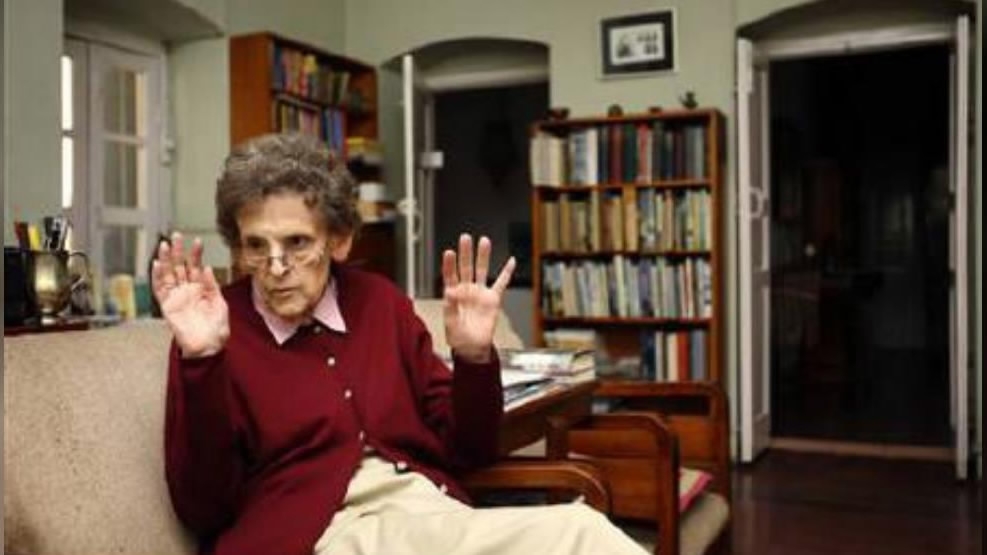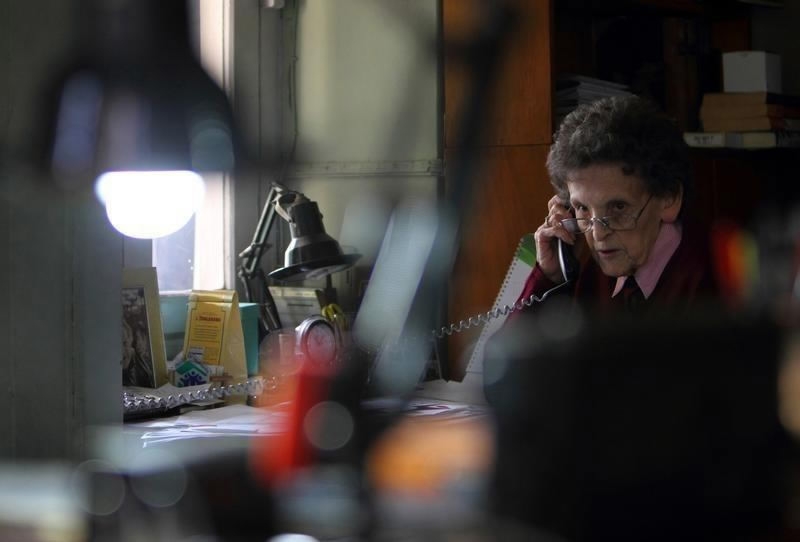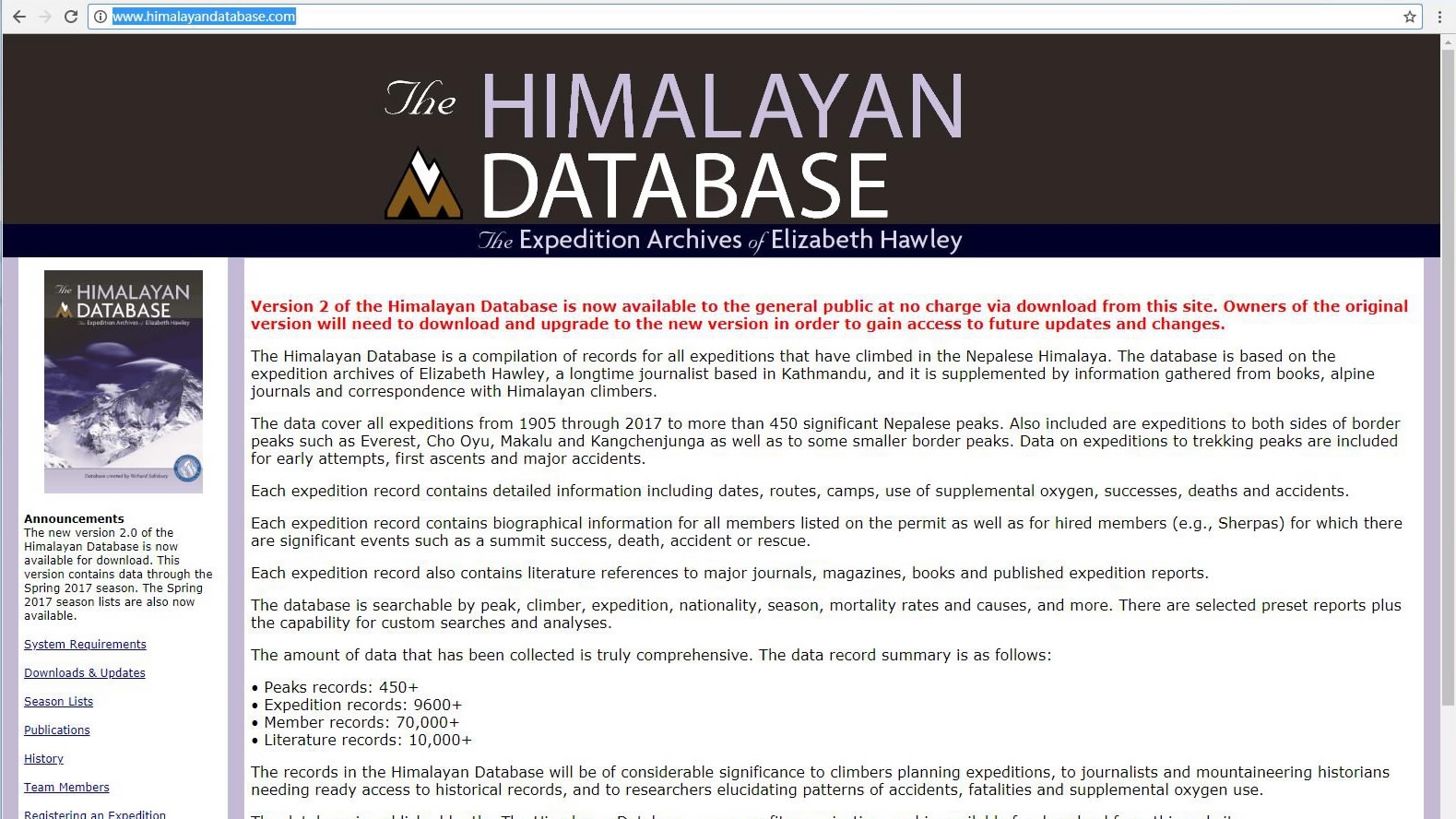
World
17:10, 26-Jan-2018
Elizabeth Hawley, the ‘Sherlock Holmes of mountaineering’ dies in Nepal at 94
CGTN

Elizabeth Hawley, the American journalist known for chronicling expeditions in the Himalayas for five decades, died in the Nepalese capital of Kathmandu in the early hours of Friday at the age of 94.
Kathmandu-based newspaper The Himalayan Times reported pneumonia to be the cause of Hawley’s death, citing officials in the Ministry of Culture, Tourism and Civil Aviation.
Hawley's chronicling summits and tragedies in the Himalayas earned her the moniker “the Sherlock Holmes of the mountaineering world”. She breathed her last at the CIWEC Hospital in Kathmandu – a travel medicine center to treat foreign diplomats and aid workers in Nepal – at around 3:00 a.m. local time on Friday, a ministry official Gyanendra Kumar Shrestha told the newspaper.
She was admitted to the hospital a week earlier after falling ill with a lung infection, he informed.

US-born Elizabeth Hawley, the former journalist and chronicler of mountain climbing in the Himalayan nation, speaks on the phone in Kathmandu, Nepal, on May 5, 2011. /Reuters Photo
US-born Elizabeth Hawley, the former journalist and chronicler of mountain climbing in the Himalayan nation, speaks on the phone in Kathmandu, Nepal, on May 5, 2011. /Reuters Photo
Hawley built a reputation as one of the most authoritative voices on Himalayan mountaineering after moving to Nepal in 1958 as a journalist, where she continued to live up to her death. "She had a very peaceful death," Dr Prativa Pandey, who looked after Hawley at the end of her life, told AFP.
“Miss Hawley, who first arrived Kathmandu in February 1958, made Nepal her second home. The government has also conferred honorary Nepali citizenship on Hawley,” The Himalayan Times reported.
She later founded the Himalayan Database – a meticulous archive of all summits in Nepal's mountains – that she managed until five years ago.
Known for ferreting out the truth from climbers claiming to set new records, her word on summits in the fabled mountains was considered final, though she never climbed any peaks herself.
Every climbing season Hawley – behind the wheel of her 1965 sky-blue VW Beetle – would drive to mountaineers' hotels in Kathmandu to grill them before and after their expeditions.
"I guess I am quite forceful, I come to the point and if someone thinks they can evade my questions, they can think again," she told AFP in a 2014 interview.

A screenshot of the homepage of the Himalayan Database, which was founded by Elizabeth Hawley and managed by her until five years ago. The database maintains a meticulous archive of all summits in Nepal's mountains.
A screenshot of the homepage of the Himalayan Database, which was founded by Elizabeth Hawley and managed by her until five years ago. The database maintains a meticulous archive of all summits in Nepal's mountains.
Elizabeth Ann Hawley was born on November 9, 1923 to a Chicago-based chartered accountant and a suffragist.
She attended university in Michigan and promptly moved to Manhattan after graduation in 1946, landing a job as a researcher with Fortune magazine.
The job bored her and she took off to see the world in 1957, finally ending up in Nepal in February 1959, then a Hindu kingdom which had only recently opened its gates to foreign visitors.
Hawley eventually became a correspondent for the Reuters news agency in Nepal and landed her first major scoop during the 1963 US expedition to Everest.
The American military attache offered her access to secret radio communication between Everest base camp and the embassy, enabling her to be the first to file when they reached the summit.
In 2014, Nepal named a 6,182-metre (20,328-foot) mountain in her honour: Peak Hawley in the country's northwest.
"I retire when I die. It might be the same thing," Hawley said in her book "The Nepal Scene", a collection of monthly dispatches she wrote until 2007.
(With input from agencies)
[Cover Photo: US-born Elizabeth Hawley, former journalist and chronicler of mountain climbing in the Himalayan nation, during an interview in Kathmandu, Nepal, on May 5, 2011. /Reuters Photo]
3159km

SITEMAP
Copyright © 2018 CGTN. Beijing ICP prepared NO.16065310-3
Copyright © 2018 CGTN. Beijing ICP prepared NO.16065310-3